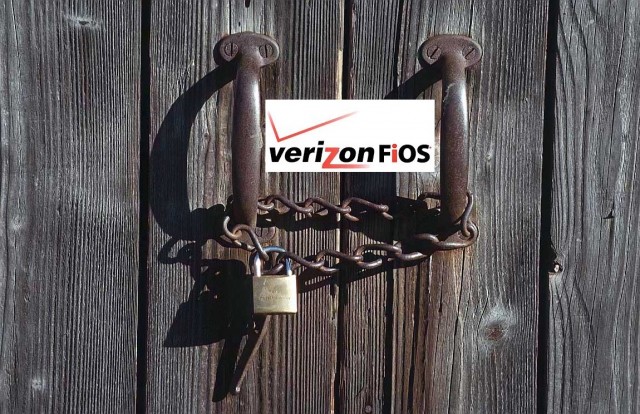
Verizon FiOS is off limits to rural customers. Wireless voice and satellite broadband is in your future.
Verizon Communications has big plans for its “miraculous” wireless home phone replacement which will soon find itself in rural homes across Verizon’s service area as part of a larger plan to dismantle rural America’s wired telephone network.
Just as company executives promised more than a year ago, Verizon wants to transition rural customers to fixed wireless phone service that could mean the end of wired broadband for millions of Verizon customers still using DSL.
Verizon senior vice president Tom Maguire told Communications Daily Voice Link is Verizon’s answer for customers it cannot easily transition to fiber optics. He is thrilled about the prospects of getting rid of deteriorating copper networks in favor of an inexpensive wireless alternative.
“I’m super jazzed about this because I think it will be good for everybody,” he said. “I think it’ll change a lot.”
For rural Verizon customers, the changes could be profound, dramatic, and not exactly a win-win scenario:
- No more wired phone service, which means medical monitoring, many home security systems, and inexpensive dial-up service that all rely on landline technology will be rendered unusable;
- No more unlimited use DSL service, no business broadband service, no credit card processing or other electronic business transactions that depend on a wired connection;
- No enforced quality of service standards, rate oversight, or guarantee of access to quality voice service;
- No prospect of advanced fiber optic FiOS services, including high bandwidth video and broadband.
Verizon is making it clear Fire Island and the New Jersey Barrier Island are just the first steps towards the retirement of copper, either in favor of fiber optics in high profit/low-cost areas or wireless in rural areas not worth upgrading.
Maguire claims Fire Island residents did not want the company to tear up yards or streets to replace its damaged copper wire network with newer technology like fiber. But Fire Island residents and administrators tell Stop the Cap! they were never asked. Instead, residents are being told Voice Link is likely their only option for traditional phone service on the western half of the island, and some customers are unhappy they will never get FiOS broadband upgrades Verizon says are financially untenable to provide.
Verizon has quietly tested Voice Link in Florida, giving customers the option of keeping their wired service or switching to the wireless alternative. But the test may have been stacked in Voice Link’s favor, as the choice was given to voice-only customers having chronic service problems with Verizon’s deteriorating copper wire network.
Going forward, many rural customers may not have a choice. For those who want Internet access, Verizon isn’t promising its wireless network is up to the task. Their suggested alternative?

Verizon’s solution for rural broadband.
Maguire acknowledged Voice Link customers won’t be able to fax or do certain activities, but he said the telco never pretended they would. Verizon won’t be offering data services with Voice Link, but if Fire Island customers want more options, they can potentially choose satellite, he said.
Maguire believes that customers living with a deteriorating copper landline network will gravitate quickly towards a wireless phone replacement.
Verizon arranged a blind test of Voice Link for 40,000 customers in another company’s territory with unbranded devices. When the copper wire network performed normally, customers preferred the quality of traditional landline service. But after it rained, the poorly maintained network made all the difference.
“The copper sounded like hell, it was noisy and static-y,” Maguire said.
Maguire did not say if Verizon blind tested whether customers preferred traditional landline service, Voice Link, or its fiber optic FiOS network.
Verizon hopes to begin introducing its Voice Link service in other markets as early as June.


 Subscribe
Subscribe





 Frontier Communications has admitted in a
Frontier Communications has admitted in a  Frontier claims it faces robust competition in Washington and should be entitled to deregulation.
Frontier claims it faces robust competition in Washington and should be entitled to deregulation.